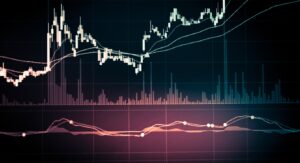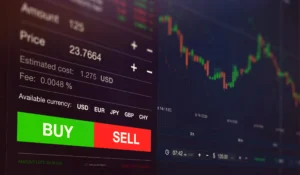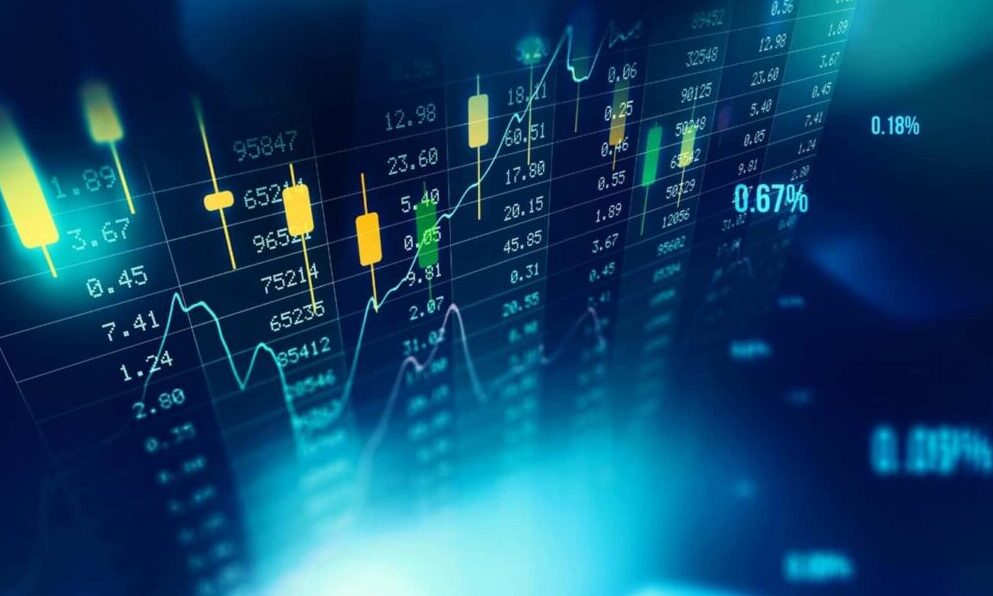The forex market, also known as the foreign exchange market, is a decentralized global marketplace where currencies are traded. It is the largest and most liquid financial market in the world, with an average daily turnover of trillions of dollars. The forex market operates 24 hours a day, five days a week, and allows individuals, institutions, and governments to buy and sell currencies based on their expectations of future currency movements.
Geopolitical factors play a crucial role in forex trading. Geopolitical tension and uncertainty can have a significant impact on the forex market, as they affect the overall risk appetite of investors and traders. Political turmoil, natural disasters, and warfare are just a few examples of events that can have a profound effect on currency markets. When there is increased uncertainty, investors tend to seek safe-haven assets, such as the US dollar, Swiss franc, or Japanese yen, leading to an appreciation in their value. On the other hand, currencies of countries facing geopolitical challenges may experience depreciation.
Geopolitical uncertainty can directly impact currency values in the forex market. Changes in government policies, trade disputes, and geopolitical conflicts can create volatility and fluctuations in currency exchange rates. For example, a sudden escalation in trade tensions between two countries can lead to a depreciation of their respective currencies. Moreover, geopolitical events can also influence central bank decisions and monetary policies, which in turn affect currency values. Therefore, forex traders closely monitor geopolitical developments and news to make informed trading decisions. The interconnectedness of the global economy means that events from all corners of the world can have an immediate effect on exchange rates and currency values.
Geopolitical factors affecting the forex market
The forex market is highly sensitive to geopolitical factors, which can cause significant volatility and uncertainty in currency exchange rates. One such factor is political instability and regime changes. Elections, for example, can be viewed by traders as potential sources of political instability and uncertainty, leading to greater market volatility. When there is a change in government or political leadership, it can disrupt economic policies and create uncertainty about future economic conditions, which in turn affects currency values. Traders closely monitor political developments and adjust their trading strategies accordingly to navigate the potential risks and opportunities.

Trade wars and tariffs are another major geopolitical factor that can roil the forex market. When countries engage in protectionist actions and impose tariffs on each other’s goods, it can lead to increased trade tensions and disruptions in global supply chains. These actions can have a significant impact on currency values, as they affect the competitiveness of nations’ exports and imports. For example, the trade war between the United States and China in recent years has caused significant volatility in the forex market, as investors react to the uncertainty and potential impact on economic growth. Traders closely monitor trade negotiations and announcements of new tariffs, as they can have immediate and long-term effects on currency exchange rates.
Geopolitical conflicts and wars also have a profound impact on the forex market. When there is a rise in geopolitical tensions, such as armed conflicts or territorial disputes, it creates uncertainty and risk aversion among investors. This can lead to a flight to safe-haven currencies, such as the US dollar or the Swiss franc, as investors seek to protect their assets. Geopolitical conflicts can disrupt global trade, affect commodity prices, and destabilize economies, all of which have implications for currency values. For example, the ongoing conflict in the Middle East has had a significant impact on oil prices, which in turn affects the currencies of oil-exporting and oil-importing countries. Traders closely monitor geopolitical developments and geopolitical risks to make informed trading decisions.
Strategies for navigating the forex market during geopolitical uncertainty
During periods of geopolitical uncertainty, it is crucial for forex traders to employ effective strategies to navigate the market. One essential strategy is implementing risk management techniques. Creating market-specific assessments, or “compacts,” that integrate corporate strategy and risk management can help traders identify and mitigate potential risks. By assessing the potential impact of geopolitical tension on the market, traders can adjust their risk appetite accordingly. This proactive approach to risk management can help protect traders from significant losses and ensure the preservation of their capital.
Diversification of currency holdings is another key strategy for navigating the forex market during geopolitical uncertainty. Diversifying one’s currency holdings can help limit the risk associated with trading in a single currency. Geopolitical tensions can threaten financial stability, making it crucial for traders to spread their investments across various currencies. By diversifying, traders can reduce their exposure to any one currency and increase their chances of profiting from favorable market movements. This strategy can help traders maintain a balanced and resilient portfolio even in the face of geopolitical uncertainties.

Utilizing technical and fundamental analysis is a fundamental strategy for navigating the forex market during periods of geopolitical uncertainty. Technical analysis involves studying historical price data and using various indicators to predict future price movements. On the other hand, fundamental analysis focuses on analyzing macroeconomic factors, political events, and geopolitical factors that can impact currency values. By combining these two approaches, traders can gain a comprehensive understanding of the market and make informed trading decisions. This strategy allows traders to adapt to changing geopolitical dynamics and identify potential trading opportunities.
Future outlook for the forex market amidst ongoing geopolitical uncertainty
The forex market is currently facing significant uncertainty due to ongoing geopolitical events around the world. Geopolitical events have the potential to have an immediate and substantial impact on exchange rates and currency values, given the global interconnectedness of the forex market. Major currencies are particularly vulnerable to the effects of geopolitical events, which can lead to increased volatility and fluctuations in the forex market. The imposition of financial restrictions and heightened uncertainty resulting from geopolitical tensions can also threaten financial stability. It is crucial for forex traders to closely monitor geopolitical developments and their potential impact on the market to make informed trading decisions.
The volatility in the forex market resulting from geopolitical uncertainty can present both challenges and opportunities for traders. Increased volatility often leads to more trading opportunities, as currency values fluctuate more rapidly. However, heightened market volatility can also pose risks, as it can be challenging to accurately predict market movements and make profitable trades. Traders need to carefully assess the risks and rewards associated with trading during periods of geopolitical uncertainty and implement appropriate risk management strategies. By staying informed and adapting to changing market conditions, traders can navigate the forex market more effectively during times of geopolitical turmoil.
Geopolitical uncertainty can have long-term implications for the forex market and the global economy as a whole. Political turmoil, natural disasters, and wars can profoundly impact currency markets. While the immediate effects of geopolitical events on the forex market may be hard to predict, it is essential to stay aware of them and their potential consequences. Geopolitical tensions can create increased uncertainty, which can affect risk appetite and investor confidence, ultimately influencing currency values. However, empirical findings suggest that geopolitical events in emerging countries may have limited importance to the global economy. Despite the challenges posed by geopolitical uncertainty, the forex market remains a significant global market, with high turnover and dominance by a few major currencies. Traders and policymakers alike must carefully consider the long-term implications of geopolitical events on the forex market and take appropriate measures to mitigate risks and promote stability.
